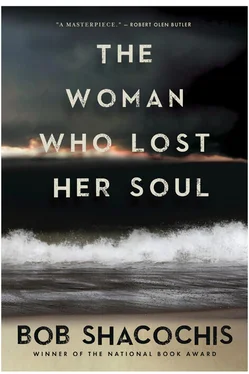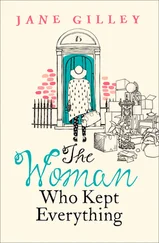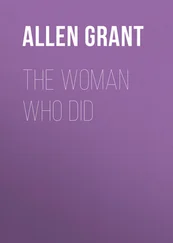This will be different, he overheard the director say to the screenwriter. We’re not doing this for our Haitian friends, he said and she smiled knowingly and nodded once that she understood. Let’s think patriotism, romance. A Green Beret and an aid worker? A Green Beret and a Haitian woman?
Think The Sand Pebbles meets M.A.S.H., said the producer.
What does that mean? Tom asked.
I don’t know, said the producer, except they’re both great movies. You’ll help us out on this, won’t you?
The waiter replaced their dishes with slices of lime pie and glass chalices containing smooth globes of mango sorbet. The director refilled Tom’s empty brandy snifter with Barbancourt, which he compared to the finest cognac.
Tom smiled politely and sat back in his chair, not meaning to ponder the invitation but he looked to be doing just that. The proposition seemed so offhand and uncalculated that it struck him as cavalier, as if he were being gathered up to go to a party — come on, hop in — and although he had no idea what he might possibly contribute to such a novel enterprise as the making of a movie, of course, and perhaps naively, he agreed to the unlikely project.
Haiti was the director’s true cause, his central passion — but Tom couldn’t say why, and never dwelled on it. Harrington saw him twice more: the next day at the inauguration, dressed in a business suit and seated among the dignitaries in the grandstand erected in front of the National Palace, and then a final time coming out of Galerie Issa with his entourage, stacks of paintings cradled in their arms. No one mentioned the movie to Tom again, and it was never made.
On the periphery of the conversation, while they finished their pie and sorbet, Tom had noticed the screenwriter get up from the table and disappear back around the corner of the wall that separated the patio from the interior bar, presumably to find the toilet. Now she returned light on her feet, a gust of excitement, her face flushed with serendipity.
There is the most perfect, lovely girl around the corner, she announced breathlessly to the table, and named a pixieish Hollywood actress who starred in romantic comedies as the perfect, lovely girl’s identical twin. The screenwriter imagined the wolf in her male friends’ expressions because she playfully admonished, You men stay away from her, with a theatrical drawl.
The table trafficked in ingenues, though, and had no interest in her. On the other hand, the actress who had been compared to the girl around the corner was one of Harrington’s favorites, the standard-bearer for every Sally-next-door heartthrob fantasy the studios could confect, and he found the temptation to have a quick look irresistible.
Excuse me, he said, popping up, a boyish grin on his face. I’ll be right back.
For once in Haiti, he was having an unqualified good time. The evening had made him dizzy and unselfconsciously energized, drunk from the unaccustomed attention of well-known people, and Tom Harrington felt he had rare gifts to hand out to any audience: charm or knowledge or, god knows, some cause for happiness.
He walked toward the soft-lit pool at the rear of the hotel, turning where the patio elbowed to the right along a stuccoed arcade, each of its arches providing a discreet shelter for diners seeking privacy. She was in the third alcove, her back to him, having dinner with a correspondent from the Guardian who had returned to London several months ago after the elections. The correspondent glanced up from his conversation with the girl and, smiling broadly, his eyes met Tom’s and he called him over. Suddenly embarrassed by his game, Tom lurched forward to the side of their table, trying to remember the fellow’s name, and took the journalist’s hand with unnatural exuberance, saying loudly, Good to see you, and When did you get back?
Yesterday, he said. It’s too fucking quiet, isn’t it.
Tom shifted his eyes expectantly toward the girl but her head was tilted down at her plate, only the golden crown of her head visible, the cut of her neck-length hair shielding her face — a remote angel — and she made no effort to acknowledge Tom’s presence, and so he returned his attention to her companion and they spoke for a few minutes about mutual friends, Tom’s eyes darting back and forth between the fellow and the girl until finally his Guardian friend felt prompted to introduce him.
Do you know Jacqueline?
When she raised her blue eyes to grant him an insincere smile, Tom was indeed astonished by her resemblance to the famous actress, and instantly inflamed by her cover-girl wholesomeness, the appearance of it at least. She had a nervous body, clapping knees and restless arms, but was not timid under the scan of yet another pair of fixated eyes, and regarded Tom with an utter absence of interest. Instead of dazzling, her beauty seemed to be the source of profound comfort and unending satisfaction, the American ideal, the girl every boy dreamed of courting and winning, the girl who made every one of them crazy in high school and wretched in college, their universal torture queen, blithe collector of tormented young hearts, the first and last girl to occupy their beautiful self-told lies of perfect love, perfect companionship, the one they could never stop needing and never stop hating and never get out of their minds. Hers would be a slavish cult of eager youth and wicked men, and Tom could only be thankful that, given the manifold distances between them — she in her midtwenties, he entering his forties; a mathematical separation not quite tainted by the dread of imaginary fatherhood — any intimacy they might impossibly stumble into would be short and bitter, rather than what it would have been otherwise: prolonged and destructive. Still, she was a cookie, a forbidden treat you may or may not be allowed, and although he had nothing to say to her and nothing came to mind, he could not take his eyes off her.
Jackie’s a photographer, said the fellow from the Guardian, and Tom tried to see her more clearly through the perspective of her profession but she was too green, too studied in her wrinkled clothes: baggy, many-pocketed khaki pants and an immaculate V-neck T-shirt the color of a lemon. No jewelry, not even a wristwatch, except for small gold studs in her ears — not a total naïf, then; at least she knew not to bait herself for a mugging.
Who do you work for? Tom asked.
Nobody. She shrugged and examined her unpainted fingernails. Tom looked to the Guardian for an explanation but he cocked an eyebrow and shrugged as well. Weird chick, said his face, and Tom thought, Does she not understand where she is?
Good luck, he said and retreated to his table.
Later he would always think how peculiar it was, the way he met her — hardly a meeting at all. A comic impulse to mock the implication in the screenwriter’s half-serious warning to stay away from her. Tom had only wanted a look. It was nothing really, a sixty-second charade of voyeurism and desire.
A quick look, and then he could tell himself that he knew her story, but it was the other way around, somehow she knew his, and it would be a while before he began to believe she had meant to be at the Kinam that night, sitting with an acquaintance of Tom’s, and only the details of how he came to her table could be called coincidence.
Well? prompted the screenwriter, giddy with anticipation. Did you see her? What did I tell you? She’s fabulous, right?
We’re engaged, Tom said, and everybody snickered. But he was afraid that somehow she embodied a cycle in his life, a bad old season blowing in, and already he hoped to see her again.
As they were leaving the airport, his anger with Connie Dolan receded toward the fact of the matter; the girl was dead — murdered — and he could not escape the guilty notion that he owed her this if nothing else, the decency of caring. Despite Dolan’s manipulations, he would consent to the intent of their partnership, without making much of an effort to explain to himself why.
Читать дальше












